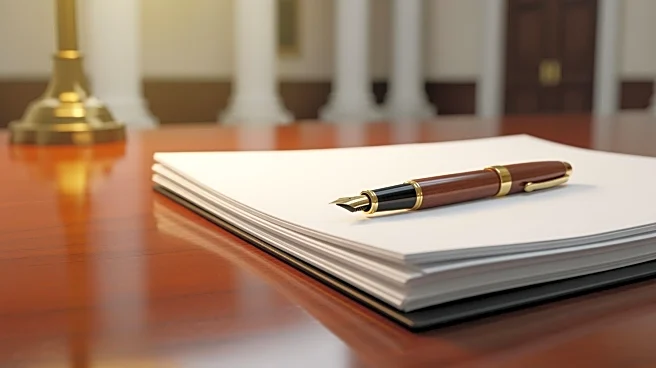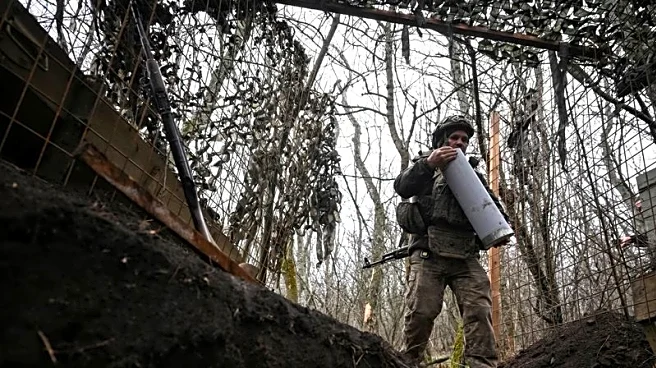What is the story about?
What's Happening?
President Trump recently issued a proclamation imposing a $100,000 fee on petitions for H-1B visas, which are typically reserved for highly skilled foreign workers. This move has surprised employers, particularly those in the technology and STEM fields, who rely on these visas to hire specialized talent. The proclamation, effective September 21, initially caused confusion among companies like Microsoft, which urged their H-1B workers traveling overseas to return to the U.S. The administration later clarified that the fee does not apply to current H-1B holders, including those outside the U.S. Additionally, a new rule proposed by the Department of Homeland Security aims to favor higher-paid roles in the H-1B visa lottery system. The proclamation has raised questions about its applicability to foreign students in the U.S. and the specifics of the fee payment process. Furthermore, the proclamation includes exceptions for industries deemed in the national interest, though the criteria for these exceptions remain unclear.
Why It's Important?
The changes to the H-1B visa program could significantly impact U.S. businesses, particularly in the technology and STEM sectors, which rely on foreign talent to fill specialized roles. The $100,000 fee may deter companies from applying for these visas, potentially leading to a shortage of skilled workers and affecting innovation and competitiveness. The business community, including the U.S. Chamber of Commerce, has expressed concerns and is considering legal action against the proclamation. The Chamber has urged the administration to rescind the proclamation and collaborate with Congress on reforms to the H-1B program. The legal and economic implications of these changes could affect the labor market and the ability of U.S. companies to attract and retain top talent.
What's Next?
As the business community awaits further clarification on the proclamation, legal challenges may arise, potentially delaying or altering its implementation. Employers must navigate the new rules and assess their impact on hiring practices. The fiscal year 2026 cap for H-1B visas has already been reached, meaning companies will have to wait until next March to register for the lottery. The administration may face pressure to address the concerns raised by businesses and consider adjustments to the proclamation. The outcome of potential legal actions and discussions with Congress could shape the future of the H-1B visa program and its role in the U.S. economy.
Beyond the Headlines
The proclamation highlights broader issues related to immigration policy and its impact on the U.S. workforce. The focus on restricting entry and imposing fees reflects ongoing debates about balancing national security and economic growth. The exceptions for industries in the national interest raise questions about prioritizing certain sectors over others. The legal and ethical dimensions of the proclamation may influence future immigration policies and the relationship between the government and the business community.
















